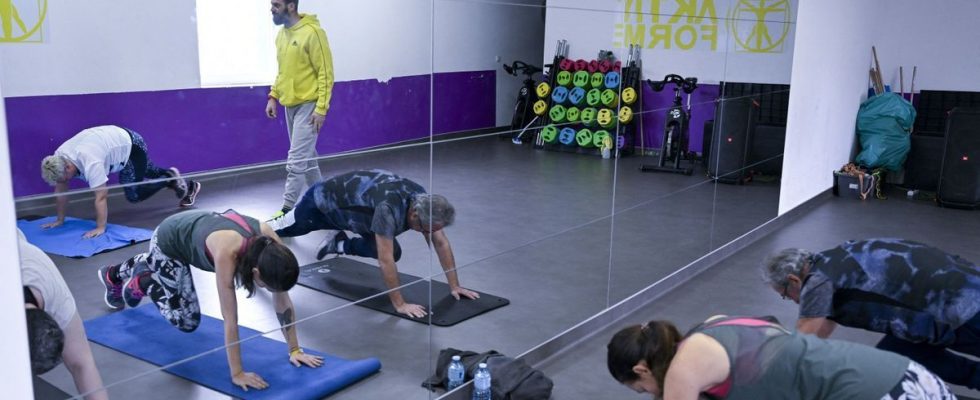Published on
Updated
Reading 2 min.
“For a year, I have not taken an anti-inflammatory”: a real “medicine” against chronic illnesses, prescription sport has been deployed in the Grand Est since 2018, a “very satisfactory” system for patients.
In the “Aktiv’Forme” gym in Neuves-Maisons (Meurthe-et-Moselle), five patients suffering from chronic illnesses or cancers meet for sessions adapted to their pathologies.
They all started with the “Prescri’mouv” system, created in 2018 by the Region, the Regional Health Agency (ARS) and operators such as the Regional Olympic and Sports Committee (Cros).
They were prescribed, by their attending physician or a specialist, eight to twelve reimbursed physical activity sessions.
Aldo Danelon, one of them, explains that he suffers from back pain. “Before, I went to the physiotherapist, it would go away for a while, but it would come back“, he recalls. Since he took up sport, his pain has been much less recurrent. “Now I come (to the gym) four to five times a week“, he assures.
Her comrade Caroline Rosiak suffers from spondylitis: “For a year, I haven’t taken a single anti-inflammatory. The best medicine is sport“, she assures.
“Regain confidence”
“With adapted sport, we gradually regain self-confidence” while being “observed, safe“, agrees Pascal who practices gymnastics with the Heart and Health Club of Nancy.
The sessions are “very professional”, in “a very specific medical context”, specifies Philippe Robert, president of the club where two thirds of the practitioners have a heart problem.
A unique system in France at such a degree of achievement and on such a vast scale, Prescri’mouv has enabled the monitoring of 10,000 patients since 2018, according to Nadège Hornbeck, vice-president of the Region in charge of health.
Nearly seven out of ten patients continue physical activity after the reimbursed sessions.
But “what is taken is taken”, emphasizes to the ARS Dr Arielle Brunner. The reimbursed sessions allow “to get started” but also, for patients, to “become aware of the benefits” of the activity and to help “better manage” their illness.
Territorial inequalities
Allowed by a 2016 law, these adapted physical activity sessions are today covered by certain mutual insurance companies, or as part of experiments, but not widely by Health Insurance.
In the social security budget adopted at the beginning of the month, the government finally agreed to extend the system to patients treated for cancer, on an experimental basis and for a period of two years. A less generous gesture than initially announced during the debate in Parliament, when it was a question of including people with diabetes.
“This is already a very important first step” for Dr Brunner who also highlights the role of sports-health centers, created in 2019 as an “entry point” to physical activity.
Dr Alexandre Feltz, deputy mayor of Strasbourg, responsible for public and environmental health, recalls the territorial inequalities in access to sport and health: “Invest today” would however make it possible to “win tomorrow”, particularly on health and medication costs, he underlines.
We must also remove the brakes on audiences furthest from sport, according to Joris Petitmangin, deputy director of Cros Grand Est. Like the fear of getting injured, the lack of time or even the financial brake. To remedy this, some associations offer annual contributions of 50 euros.
